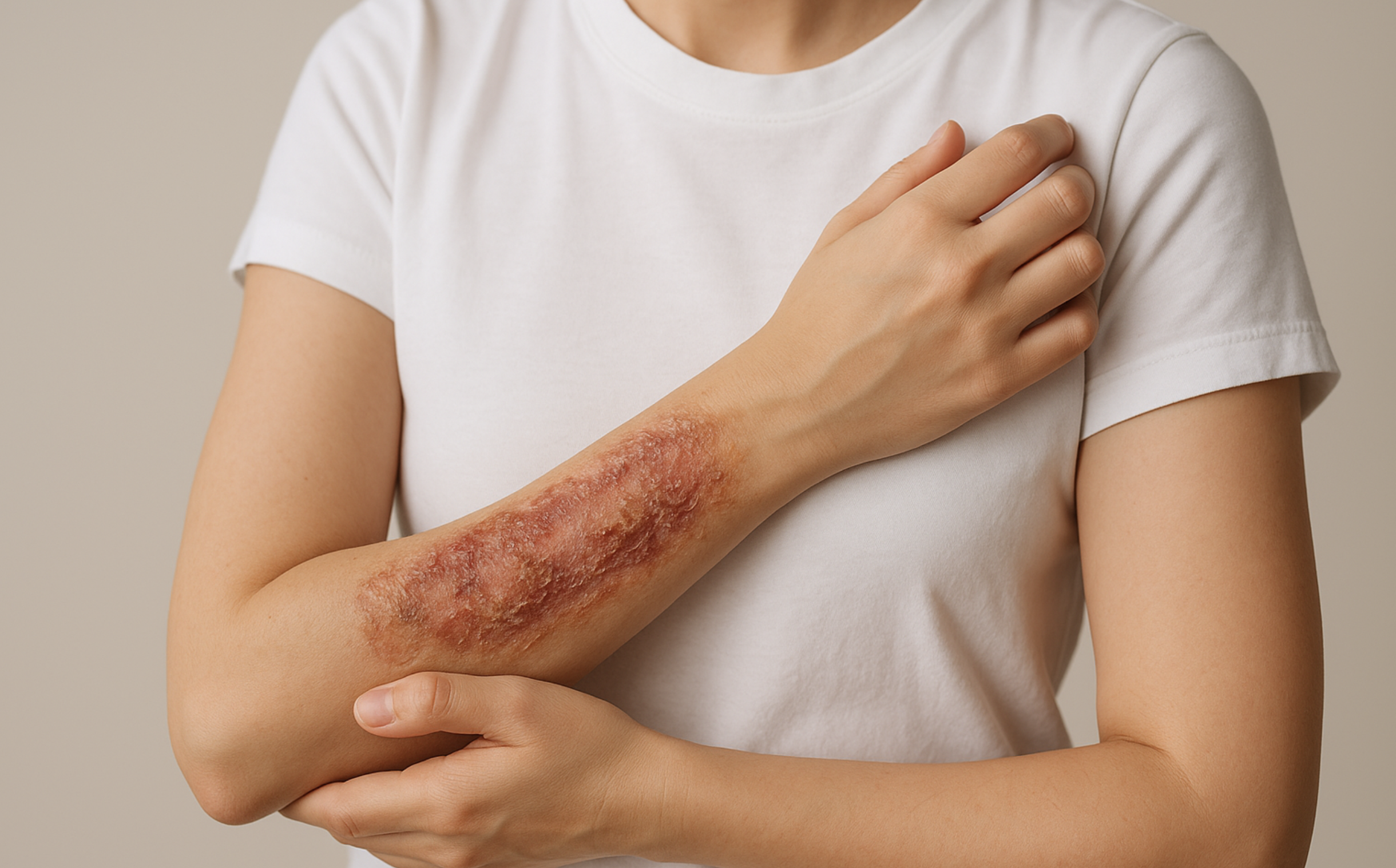
Our skin is the body’s largest organ — and also one of the most remarkable. Every day, it repairs, renews, and defends us from the outside world. But when it’s damaged by wounds, burns, acne, or irritation, the repair process can be slow, uneven, and easily disrupted by stress, poor nutrition, or inflammation.
The good news: modern research shows that our bodies already hold the blueprint for healing — we just need to support the right cellular mechanisms.
Below are science-supported ways to encourage faster, smoother, and more complete skin recovery.
Skin healing happens in three key stages:
Supporting each stage with the right nutrition, hydration, and gentle care can dramatically improve outcomes.
Your body heals from the inside out. Certain nutrients are proven to speed recovery:
Add foods like citrus, berries, avocado, nuts, chia seeds, salmon, and leafy greens to your daily meals for natural healing support.
Some natural topical ingredients have been shown in studies to enhance wound and scar healing:
When applying any topical, always cleanse gently, use clean hands, and avoid harsh antiseptics that can damage new tissue.
Recent studies highlight the importance of cell signaling and oxidative balance in wound recovery. Certain bioactive compounds — like policosanol, a plant-derived molecule used in advanced formulations — may help the body activate its innate repair pathways.
Policosanol-based nano-emulsions (such as those found in Nano Soma formulations) are designed to interact with vitamin D receptors, potentially supporting the body’s ability to restore normal cellular function and skin integrity naturally.
While not a substitute for medical care, these innovations point toward a future where the body’s own intelligence becomes the healing agent.
Modern research is revealing that the body can often repair itself if key cellular pathways are reactivated — particularly those linked to vitamin D receptors and oxidative balance.
One emerging compound in this area is policosanol, a plant-derived molecule used in Nano Soma formulations.
Early research and user reports suggest that Nano Soma may help the body restore normal cellular function, improving the skin’s ability to regenerate naturally after irritation, acne, or minor burns.
Nano Soma doesn’t replace medical treatment — instead, it supports the body’s natural systems that promote healing and balance from within.
Because it’s derived from sugarcane and formulated at the nanoscale, it can be used both orally and topically, offering a holistic approach to wellness and skin health.
Healing is a full-body process. Daily habits make a big difference:
Always consult a healthcare professional if:
Holistic and natural approaches work best alongside professional treatment, not in place of it.
Your skin is designed to heal itself — all you need to do is give it the nutrients, rest, and tools it needs.
From time-tested ingredients like aloe and honey to advanced innovations like Nano Soma, the path to radiant, resilient skin starts with cellular balance.
Healing isn’t magic — it’s biology supported by wisdom, consistency, and care.